BACKGROUND
Sometimes referred to as “invisible wounds,” almost one in five military service members who served in Iraq or Afghanistan have experienced post-traumatic stress disorder (PTSD) or depression. This equates to over 300,000 individual US service members. Further, only half of those who need treatment seek it, and only half of those receive what is considered
minimally adequate care for their needs. Barriers to treatment include stigma, lack of access to mental health professionals, and logistical problems such as geographic barriers.
Suicide is a critical concern for service member and veteran mental health and well-being. The rate of suicide among active duty troops has steadily risen over the past seven years, with a high of 25.9 per 100,000 individuals reported in 2019 (before the additional stress of the COVID-19 pandemic). For comparison, the overall rate of suicide in the US in 2019 was 13.9 per 100,000 individuals. Stop Solider Suicide is committed to reducing the rate of suicide for military service members by 40 percent by 2030.
APPROACH
Stop Soldier Suicide uses a data-driven and evidence-based approach to identify and treat veterans and military service members who are in need of mental health support services and at risk for suicide. Provided virtually, services are driven by high-quality and individualized care planning that aims to provide a comprehensive support system to surround, coach, and empower these individuals through their unique challenges. Wellness Coordinators work with clients to identify needs, assess risk, and provide personalized services such as mental health support, education, alternative therapies, and linkage to tools and resources.
One of the newest tools available to Stop Soldier Suicide Wellness Coordinators is the NeuroFlow behavioral health digital app. It enables an effective and efficient screening process to reduce access barriers and engages clients with customized treatment protocols that are tailored to their unique circumstances. Initiated via a text-delivered invitation, the app enables private, on-demand access to supportive and educational services. Uptake is impressive, with approximately 75 percent of invitations resulting in client registration. Once engaged with the app, Stop Soldier Suicide Wellness Coordinators are notified of client progress and can check in or intervene appropriately.
RESULTS TO DATE
Stop Soldier Suicide has engaged with over 1,600 service members and veterans since 2019, fielding an average of four requests every day. Through their comprehensive approach, they are typically able to reduce suicide risk by over onequarter within the first 30 days of engagement.
After initiating use of the NeuroFlow app, impact increased dramatically. Sixty-six percent of Stop Soldier Suicide clients reported a decrease in their depressive symptoms and 33 percent reported a decrease in their anxiety symptoms within eight weeks. Based on successful piloting, Stop Soldier Suicide plans to scale up use of the app across their care teams, using demographic data to help target the app to the clients most likely to be receptive and in need.
TOOLS AND VENDOR PARTNERS
Also a veteran-led organization with a focus on “military grade” care solutions, NeuroFlow delivers a secure mobile- and web-enabled behavioral health platform that helps Stop Soldier Suicide Wellness Coordinators keep up to date with their clients through both “push” (in the case of clients flagged as high-risk) and “pull” (for Coordinators who are proactively monitoring the progress of certain clients) data flows. As a future possible enhancement, Stop Solider Suicide is exploring how the NeuroFlow app might be integrated with their SalesForce customer relationship management platform.
“Incredibly, the app aided in the identification of an individual in urgent need of supportive services – enabling
Stop Soldier Suicide to intervene immediately with someone who otherwise might have gone untreated.”
– Chuck Eastman, Community Affairs Manager, Stop Soldier Suicide
For clients, the NeuroFlow app incorporates standard screening instruments and helps to track health-related elements such as mood (including suicidal ideation), sleep, and pain levels. Enrolled clients can engage with military experience-informed skill-building exercises and educational and wellness content. Using the latest research, the platform incorporates principles of gamification and behavioral economics to reward engagement with and continued use of the application.
“Through our partnership with NeuroFlow, we can empower our clients with real-time symptom tracking and
help them practice better self-awareness. Now we understand the trends in our clients’ mental health symptoms,
allowing us to create dynamic safety plans and provide better care.”
– Lisa Peterson, Clinical Director, Stop Soldier Suicide
CHALLENGES WITH IMPLEMENTATION
As with many virtual care delivery models, one common challenge with implementation is the reliance on smart-device technology. As part of the onboarding process, clients are educated about the data collected by the NeuroFlow app and how that information is used by Wellness Coordinators to customize treatment interventions; for this reason, some individuals have chosen to opt out of participation but most do not. In general, the app is viewed by both staff and clients as easy to access and engage, and a valuable additional “tool in the toolbox.”
Contributors
Chuck Eastman
Community Affairs Manager
Stop Soldier Suicide
Will Crowley
Director of Marketing
NeuroFlow
Kimberly Mueller
Senior Research Analyst
Accountable Care Learning Collaborative
